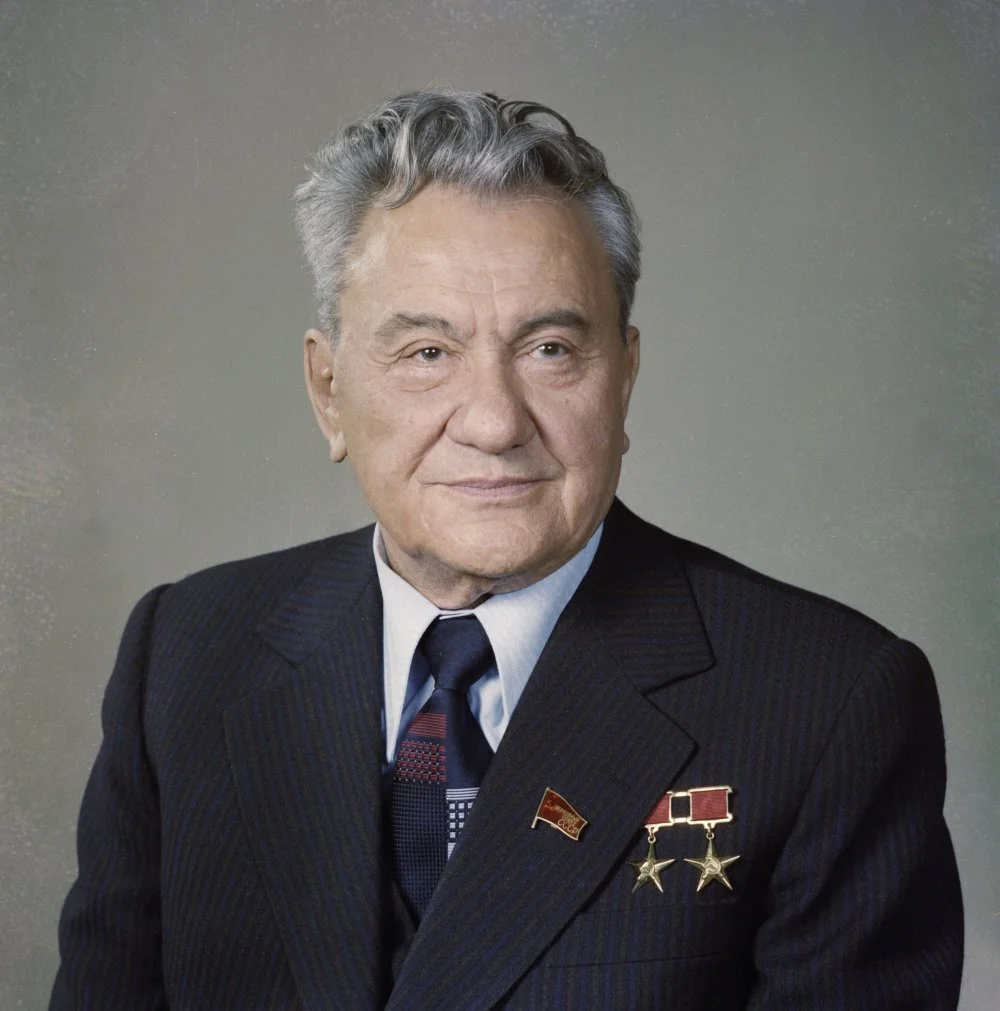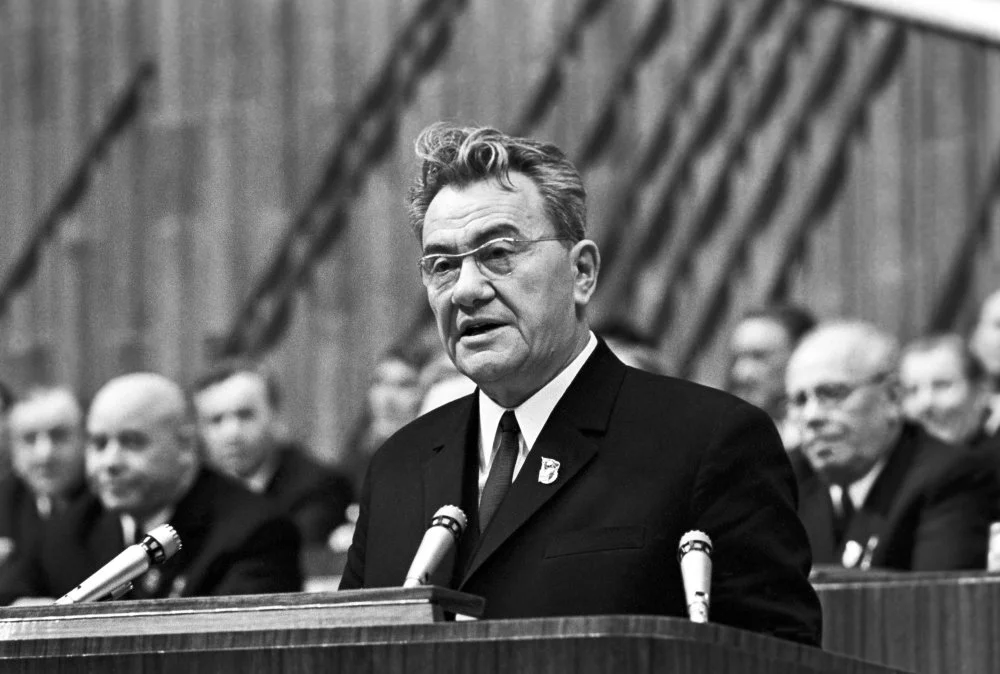On power
When you are in power, you are a dignified and respected person, but when you leave office, at best, people forget about you the next day.
On his life
If I kept a diary, reading it would probably be a boring thing to do. Meetings, speeches, business trips... Day after day, month after month, year after year. There were, of course, memorable and completely joyless events. For example, in 1974, after returning from Northern Kazakhstan, I fell ill (heart attack). Two months later, I got back in shape and plunged headlong into work again.
On ethnicity and human qualities
Kazakhs have an expression: ‘Don’t forget to mention a person’s good qualities.’ Therefore, we should never forget about the good deeds of our fellow citizens, no matter what ethnicity they may be.
On time
Of course, no one has yet managed to turn back time, but our memory succeeds in this endeavour. Years go by, but, thank God, it does not fail.
On censorship
In dealing with representatives of the media – and my meetings with them were a stable tradition, anyone will confirm this – I have never hidden anything, not even before. Neither good nor bad. I have always told it like it is. I asked them to write the truth, and only the truth. I won’t hide it, I was always surprised when, most often, the result would come out utterly smoothed, combed, hairdressed. And the problem here, I think, is not only the ferocious censorship (alas, it did exist and it worked entirely on secret directives of the centre, there’s nothing to hide here either, even all my articles and books were subjected to strict censorship), but also the personal reinsurance, the chronic self-fear, the lack of civic courage. Now, of course, everyone feels incredibly emboldened, they started speaking out loudly and spectacularly, but often, unfortunately, I would say, also destructively.
On loneliness
I do get the feeling of loneliness too. It’s when people don’t understand you or don’t want to understand you, and those are people on whom the fate of millions, the country, the entire commonwealth, and finally, even the planet, depended. I have already talked about this above. But generally there’s nothing to complain about. Still, I think the great French writer Antoine de Saint-Exupery is brilliantly right in saying that the greatest wealth and happiness in this life is the luxury of human communication. At all levels. So many times I have seen how wise a simple shepherd can be and how short-sighted this or that political leader can sometimes be.
On life goals
I have lived a long life, there was a lot of good in it, there were also bad things. But that's my life. And the goal that I set as a young man, thinking about life, I have fulfilled to the best of my strength and abilities.
On principles
I have always served my people faithfully and will serve them until the last day. No matter how much different people and harsh circumstances tried to force me to do so, I did not become embittered. Everywhere and always I have tried to respect the right of anyone to their own opinion, even if it was unpleasant for me. But I was and still am a living person, and in my life it has happened that some of the very revered people have lost my respect. Well, as they say, life is life. And in my life, as in any other, there were dark days, but I did not erase any of them from my memory. At the same time, I don’t regret anything and don’t hold any grudge against anyone.

Dinmukhamed Akhmetuly Kunaev / Valentin Cheredintsev/TASS Photo Chronicle
On the past
We can't hide anything from the past, neither good nor bad. And only a non-superficial knowledge of the past will help us all avoid ‘fateful’ mistakes on our historical journey into tomorrow.
On Gorbachev
Gorbachev instructed the party and the country to act in accordance with our Marxist-Leninist principles. ‘We should not, – he said at the February plenum of the Central Committee of the CPSU in 1988 – give up principles under any pretext.’ So what gives? Already back then he was the first to do everything to bury these principles, both on a national scale and throughout the world, counting on the full approval and support of the most ardent opponents of Marxism-Leninism and receiving it from inside and outside.
On totalitarianism and the fall of the USSR
No one would argue that totalitarianism in all its forms and variants has really outlived itself. Every phenomenon and process, including social ones, has its beginning and its end. Apparently, what was supposed to happen has happened. But, of course, not in such primitive forms, which have delivered a catastrophic blow primarily to the working class. No lofty phrases can justify its present humiliation and most miserable situation.
On the stages of development of the USSR
The first is the Stalin period, the period of the beginning of the first intense five-year plans, of industrialization, collectivization, the beginning and end of the Great Patriotic War, the beginning of the atomic age. That was the heyday of Stalin's personality cult.
The second is the period after the CSPU’s 20th Congress, the debunking of Stalin's personality cult, the liberation from the grip of dogmatism. This is the period of liquidation of many state bodies, the formation of economic councils, the breaking up of the structure of agricultural bodies, the first man’s flight into space, the defeat of the anti-party group, and the complete unity of command. It was a period of thaw and at the same time of Khrushchev’s subjectivism and voluntarism. Khrushchev, leaving Stalin’s path, has never reached Lenin’s.
The third period begins with the October plenum of the Central Committee of the CPSU in 1964. Khrushchev's dismissal, Brezhnev's rise to power, and the period that followed, which was fundamentally incorrectly called the era of stagnation, which included the short reigns of Andropov and Chernenko.
The fourth period is Gorbachev's coming to power, called Perestroika (restructuring). This is a period of glasnost (public openness) and democratization, of rampant permissiveness under the veil of loud declarations about the ‘human factor’, of ruthless and biased criticism of the Soviet people’s historical path of the past 70 years.

D. A. Kunaev during a speech at a meeting of the XXIV Congress of the CPSU in the Kremlin Palace of Congresses./V. Yegorov, V. Sobolev/TASS
On Kazakhstan in times of Stalin
In Kazakhstan, administrative-bureaucratic terror ruled. People were indiscriminately sent into ‘kulak exile’, imprisoned in concentration camps, executed. The first governor of the republic, appointed by Stalin, F. I. Goloshchekin and his henchmen, were, in fact, waging a civil war with the people, which was being hidden as much as possible. Only many decades later it became known that in five years, from 1929 to 1933, 3,386 people were sentenced to death in Kazakhstan only through the OGPU. In the wake of a most brutal genocide, the Kazakh people lost about half of their population. Many Russians, Ukrainians, Tatars, Germans, Belarusians, Dungans, and people of other ethnicities have fallen victim to it. The Kremlin's terror led to people gradually losing their age-old traditions, their way of life, their customs, their language.
On Ho Chi Minh
At the end of July, Ho Chi Minh, a prominent figure in the international communist and workers' movement, came to our republic to familiarize himself with the activities of the party and Soviet bodies. At that time, Belyaev was not in town, he was on vacation. Karibzhanov and I met the guest and created the necessary conditions for him. During the visit, Ho Shin Minh visited collective farms, state farms, a number of industrial enterprises, cultural institutions of Almaty and the region. We often had long conversations on issues of interest to him. Before leaving, Ho Chi Minh wrote a long letter expressing his gratitude for the opportunity to get acquainted with Kazakhstan. I would like to mention one particular detail: due to Ho Chi Minh’s visit, he was given Soviet money for expenses during his stay in our country. But when the visit came to an end, Ho Chi Minh returned all the money without having spent a penny on himself. That's how I remember him – modest, charming and wise.
On party discipline
Party discipline is a strict category. As a communist, I have always perceived it as the main, cementing force of the party.

L. I. Brezhnev(center), D. A. Kunaev(left) /1973, Joseph Budnevich/RIA Novosti
On retirement
A pensioner has a lot of free time. And when every day it was being reported in the media that I, the former secretary of the Central Committee, was the cause of all the troubles and shortcomings in the republic, I had even more free time on my hands. Few people called. My comrades-in-arms, and at times even my students, steered clear of the apartment where I live. They were afraid that they would be accused of colluding with the ‘former one’. It's unpleasant to remember, but that’s how it was.
On trips
Every year I visited almost all regions of Kazakhstan. I visited districts, farms, factories, construction sites, scientific and medical institutions, markets, trade facilities.
On forced settlers
Until Stalin's death, forced settlers were deprived of basic rights. They were severely restricted in their choice of place of residence and freedom of movement. In these incredibly difficult conditions, the Kazakh people showed goodwill and hospitality to Korean immigrants, as well as later to others – Volga Germans, Poles, Chechens, Ingush, Turks, Greeks, Kurds – providing them with all possible moral and material assistance. They were employed in collective farms and state farms, at industrial enterprises and construction sites.
On Nauryz
In recent years, a wonderful holiday – Nauryz – has been revived. But I can't understand one thing: why, for a long time, was it celebrated in our republic by each region, district, and even individual organizations at different times while the peoples of the Central Asian republics all celebrate it on the same day?
On the peoples
We have never belittled, but, on the contrary, have always sought to emphasize the significant role that other peoples, primarily Ukrainians and Belarusians, have played in the comprehensive development of Kazakhstan. There are countless examples of this.

D. A. Kunaev during a meeting with the famous first virgin-landers. /В. Zinin, G. Popov, M. Chumin / Photo chronicle TASS
On Afghanistan and Czechoslovakia
Now is the time for glasnost, and everyone is unanimously accusing Brezhnev of agreeing to send troops to Czechoslovakia in 1968, then to Afghanistan in 1979. He did agree, but there were forces, powerful forces that pushed and even forced him to make these decisions. After all, it was a well-known Moscow group, and their names were even mentioned in the press.
On Kazakhstan’s youth
Kazakhstan is a republic of young people.
